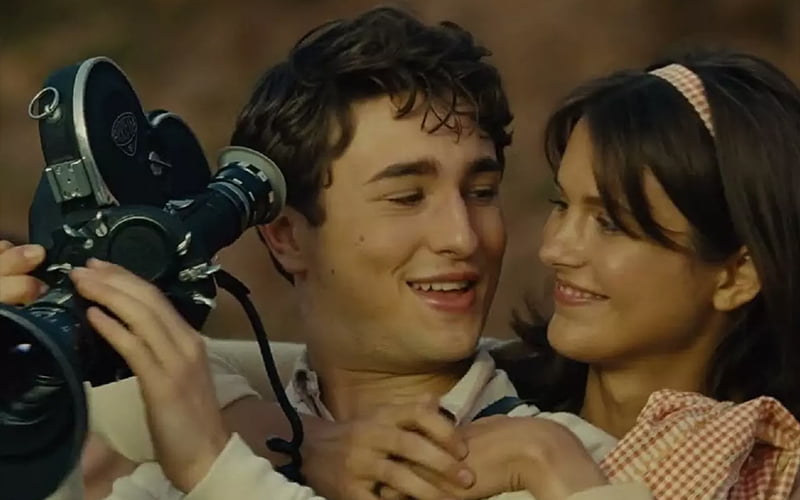Director: Steven Spielberg
Author: Steven Speilberg, Tony Kushner
Solid: Gabriel LaBelle, Michelle Williams, Paul Dano, Seth Rogen,
On January 10, 1952, younger Steven Spielberg will go to the cinema for the primary time along with his dad and mom and watch The Best Present on Earth, stupefied into silence by the prepare accident scene. He’ll go residence, briefly regain his voice to ask for a brand new prepare set for Hannukah, then proceed to ram it in opposition to one in all his toy automobiles in a recreation of that second. His mom received’t perceive his compulsion to duplicate the very factor that frightened him till all of the sudden, it involves her: That is about management.
That element offers a singular lens by which to observe The Fabelmans, a richly detailed, totally immersive snapshot of the director’s early years that’s concurrently so heat and loving, it feels prefer it’s being seen by the guileless eyes of a kid, and but so extremely sleek and mature in its dealing with of parental failings that it speaks to the type of knowledge that’s solely attainable with age. If recreating our fears is what provides us some measure of management over them, that is Spielberg inviting us into his, processing the painful non-public expertise of his dad and mom’ divorce on the most important canvas he can discover, framing and reframing their relationship as a lot for the viewers’s profit as his, peering by the viewfinder now not afraid of what he would possibly uncover.
The director reconciles the euphoria of falling in love with the films with the heartbreak of discovering his mom is falling out of affection along with his father. He captures the disintegration of his household unit whilst he acknowledges their collaborative effort that nudged him onto the trail to changing into a filmmaker. He understands the dissonance between the model of somebody that’s projected onto a giant display screen vs the particular person they are surely when the lights dim. Calling his movie The Fabelmans permits Spielberg to not solely imbue the movie with a dreamlike high quality – although his nods to realism are evident from the specificity of the day on which the movie opens – however the plural within the title underscores how moviemaking is way from a solitary career.
Born to a pianist mom (performed by an effervescent Michelle Williams) and a pc engineer father (Paul Dano), it isn’t misplaced on viewers that Spielberg is the product of artwork and science mixed, very like the films themselves. Early on, his father explains how movement photos solely transfer as a result of our optic nerves trick us into believing they do – a speech this movie shares in widespread with Sam Mendes’s Empire of Gentle, which additionally premiered at TIFF – whereas his mom places it extra whimsically. “Films are desires that you simply always remember,” she says.
Initially framed as ethereally beautiful in the best way all younger kids see their moms, it isn’t lengthy earlier than Spielberg stand-in Sammy Fabelman (Gabriel LaBelle) begins to grasp there’s one thing deeply unhappy below her lightness. The indicators of her less-than-platonic affection for her husband’s greatest buddy Bennie (Seth Rogen) are there from the start – Spielberg preserves the proof in the identical manner his movie counterpart does. Williams has lengthy performed ladies in sad marriages (Take This Waltz, 2011; Blue Valentine, 2010; Brokeback Mountain, 2005) however what makes this spherical all of the extra crushing is that the unhappiness appears to solely come from inside.
The Fabelmans offsets Spielberg’s ache at his dad and mom’ failing marriage by his pleasure at discovering simply how naturally good he’s at filmmaking, whilst an adolescent. He retraces his early inventiveness with the medium, throwing in little nods to his filmography alongside the best way – a shot of Sammy and his pals using their bikes down a sunny avenue echoes the youthful exuberance of ET (1982) – and the movie’s ultimate shot is a splendidly meta visible, an perception right into a self-reflective director processing all that he’s learnt alongside the best way. Of all of the sights in The Fablemans, nonetheless, its most resonant one is using ‘Spielberg Face’, a time period coined by critic Kevin B Lee to explain the director’s signature shot during which characters gaze up in adoration on the spectacle in entrance of them. It’s solely becoming that on this heartfelt, sweepingly-intimate movie, the recipients of this reverence are the films themselves.

